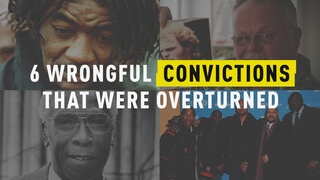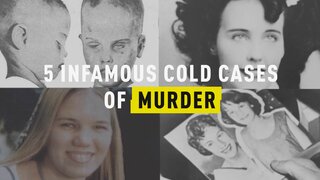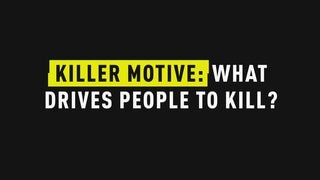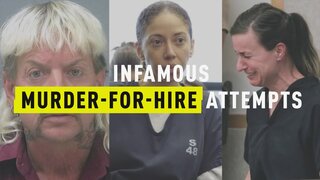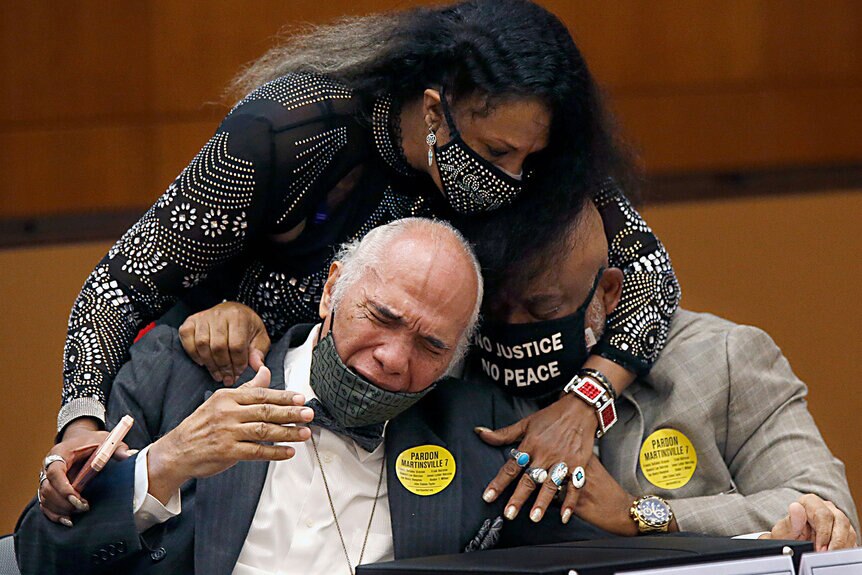Create a free profile to get unlimited access to exclusive videos, breaking news, sweepstakes, and more!
Virginia Governor Posthumously Pardons 7 Black Men Executed For Rape in 1951
It took just eight days for the "Martinsville Seven" to be tried, convicted and sentenced to death for the rape of a white woman in 1951.
A years-long campaign to address what many people have always believed was a miscarriage of justice has come to a conclusion in Virginia this week with a posthumous pardon for seven men convicted of rape and executed 70 years ago.
Gov. Ralph Northam announced on Tuesday that he had granted posthumous pardons to all of the "Martinsville Seven": Frank Hairston Jr., 18, Howard Lee Hairston (the brother of James, but not related to Frank), 18, Booker T. Millner, 19, Joe Henry Hampton, 19, James Luther Hairston (the brother of Howard, but not related to Frank), 20, John Clabon Taylor, 21, and Francis DeSales Grayson, 37. All were Black, and executed by the state of Virginia in 1951 for the 1949 rape of Ruby Stroud Floyd, 32, who was white.
In his statement, Northam's office emphasized that the pardons were granted because of the lack of due process the men had received and the racial bias in their sentencing. His office noted that, between 1908 and 1951, all of the 45 men executed for rape in the state of Virginia were Black. The defendants (all of whom were tried separately, except James Hairston and John Taylor) were convicted and sentenced to death in a matter of eight days by juries made up entirely of white men.
"We all deserve a criminal justice system that is fair, equal, and gets it right—no matter who you are or what you look like," said Northam.
Francis Grayson's son, James Grayson — who was 4 years old when his father was executed in 1951 — sobbed when he learned of his father's pardon, according to CBS News.
"Thank you, Jesus. Thank you, Lord," he said when hearing the news.
He told the Richmond Times Dispatch in 2020 that he believes his father was innocent of the crime for which he was executed.
The case inspired deep emotions and controversy at the time. Floyd, who was white, had reportedly gone to a predominately Black neighborhood of Martinsville — about 10 miles north of the North Carolina state line — near nightfall on Jan. 8, 1949 to collect money for some clothes she had sold from a woman in the neighborhood. She was seen by residents getting directions to that woman's house from a young boy. At around 7:30 p.m., she came to the door of Jesse and Mary Wade (who were Black) half dressed, and covered in dirt, scratches and bruises.
"'I’ve been raped. I’ve been raped,’ that’s what she was saying," their daughter, Annie Hobson, told the Richmond Times-Dispatch in 2020. But she did not tell the Wades, who wrapped her in a sheet and brought her to the nearest telephone since they had no phone service, who did it.
Medical exams of Floyd that were common for the era indicated that she had likely been sexually assaulted, and doctors testified at the trials that she had longer term medical issues as a result of the assault, according to "Race, Rape, and Radicalism: The Case of the Martinsville Seven, 1949-1951" from the Journal of Southern History.
By 7:30 a.m. on Jan. 9, the sheriff had arrested six of the seven men eventually tried in the case. The seventh, Joe Hampton, came to the Wades' house to turn himself in and was arrested on Jan. 10. Floyd identified only two of them — Frank Hairston and Booker Millner — to police immediately after her assault, though she identified Joe Hampton and DeSales Grayson at a preliminary hearing and said that a third attacker was either Millner or James Hairston, according to the Journal of Southern History.
All the men convicted signed confessions after their arrests, which they later claimed were forced; many were still intoxicated during their interrogations, some were functionally illiterate and unable to read what they had signed, according to the Associated Press.
At their separate trials, according to the accounts compiled in the Journal of Southern History, Hampton, Millner, Frank Hairston and James Hairston testified on their own behalf, implicating themselves and several of the other men in the assault but claiming that, because Wade did not scream or resist — a key component of Virginia's law at the time — they were not guilty. Millner alone claimed he was there but did nothing to Floyd. (None implicated Grayson, who denied all involvement.)
After their convictions and death sentences were handed down in 1949, lawyers for the Virginia state conference of the NAACP announced that they would help the Martinsville Seven in post-trial proceedings, contending that the men had been denied due process.
The state of Virginia delayed the execution of the seven men pending their appeals, which were first filed before the Virginia Supreme Court in early 1950. In their first effort, as chronicled in the Journal of Southern History, lawyers argued that the men had been denied fair trials for a number of reasons: they had been denied a change of venue, despite the publicity surrounding the case; that conducting each trial successively over the course of eight days made it difficult for subsequent juries to be more lenient to any defendant; and that the admission of the coerced confessions, made without the presence of counsel while some defendant were inebriated, was unfairly prejudicial. And they argued that the judge, in effect, by making sure that each juror was prepared to sentence the defendants to death, helped guarantee that they would do so, in part continuing a pattern of racial discrimination against Black defendants accused of rape.
The court rejected their appeal in March 1950 and notably slammed the latter argument, calling it "an abortive attempt to inject into the proceedings racial prejudice, which the trial court was extremely careful to avoid," according to the AP. An effort to get the U.S. Supreme Court to review stay the execution and review the trial based on that appeal failed in June.
The NAACP's lawyers then attempted to appeal to the then-new governor of Virginia, John Battle, to commute the sentences of the Martinsville Seven, and were granted a July 7, 1950 hearing. During it, they argued that the seven deserved commutations because they lacked any other serious criminal records and because they had been sentenced to death because they were Black and the victim and juries were white.
Battle rejected the clemency plea in mid-July, claiming the NAACP's efforts were "an unwarranted attempt to attack these convictions by injecting a racial issue."
In late July, the NAACP submitted a writ of habeas corpus to the Hustings Court of the City of Richmond, where the men were being held, arguing that their sentence was a direct violation of the 14th Amendment because, while 45 Black men had been executed for rape since 1908 (when the state took over executions from individual jurisdictions), no white men had. When their appeal was heard in September, they presented that evidence to the courts, along with evidence that twice as many Black men as white men had received life sentences for rape in the same period of time.
The judge rejected their arguments, stating that they were essentially asking him to rule that, "no Negro can be lawfully sentenced to death in the state of Virginia for rape at the present time," according to the Journal of Southern History.
The NAACP appealed the ruling and, in November, the Virginia Supreme Court also rejected the argument, repeating the local judge's ruling that the NAACP was asking the judiciary to say that "no Negroes could be executed unless a certain number of white people were killed as well,” according to the AP.
While the governor then issued a stay of execution to allow the appeals to proceed, he continued to refuse any appeals for clemency as the NAACP took its efforts back to federal court. A federal district court refused to accept jurisdiction on Jan. 30, 1951, and an appeals court refused to issue a probable cause order to appeal that decision on Jan. 31. On Feb. 1 — the day before the executions were slated to begin — a federal circuit judge also found no merit to the NAACP's arguments.
Late on Feb.1, Supreme Court Chief Justice Fred Vinson agreed to meet with the NAACP's lawyers in the case but, after an hour, also refused stay the executions.
On the morning of Feb. 2, 1951, the executions of the Martinsville Seven began with Joe Hampton, Howard Hairston, Booker Millner and Frank Hairston, respectively. By 9:05 a.m., all were dead.
John Taylor, James Hairston and Francis Grayson were executed on Feb. 5, 1951, starting at 7:30 a.m. and ending at 8:15 a.m.
The efforts to win them a pardon began again in earnest nearly 70 years later. Liz Ryan, the president and CEO of the Youth First Initiative, partnered with Pam Hairston Chisholm and a group of law students the College of William & Mary in Virginia to organize a petition for a pardon, according to the Richmond Times-Dispatch, which Northam's office considered as part of an expanded effort to clear a massive backlog experienced by the governor's office in the last few years.
As part of their effort, Ryan told the Times-Dispatch that they looked for the victim in the case, Ruby Floyd, and discovered that she had died in 1992.
